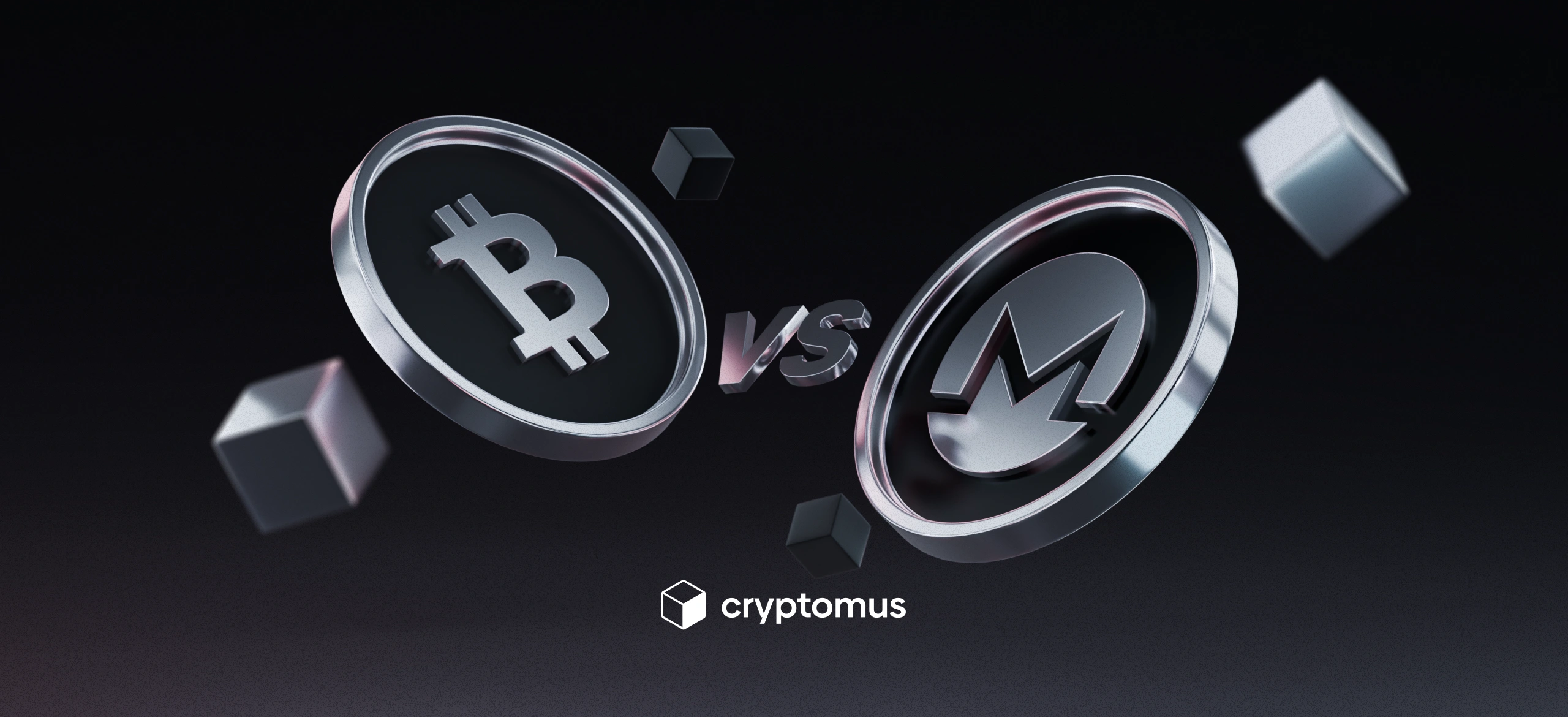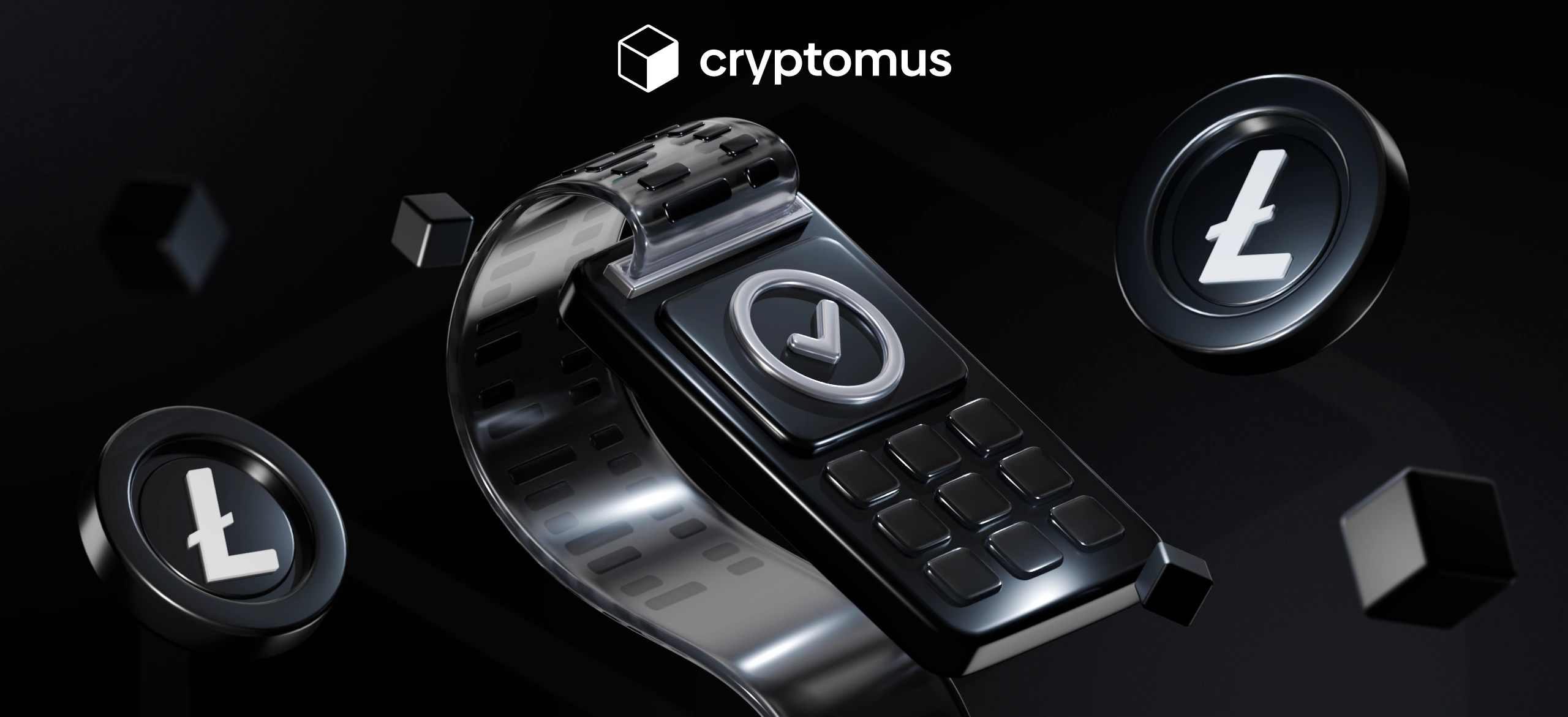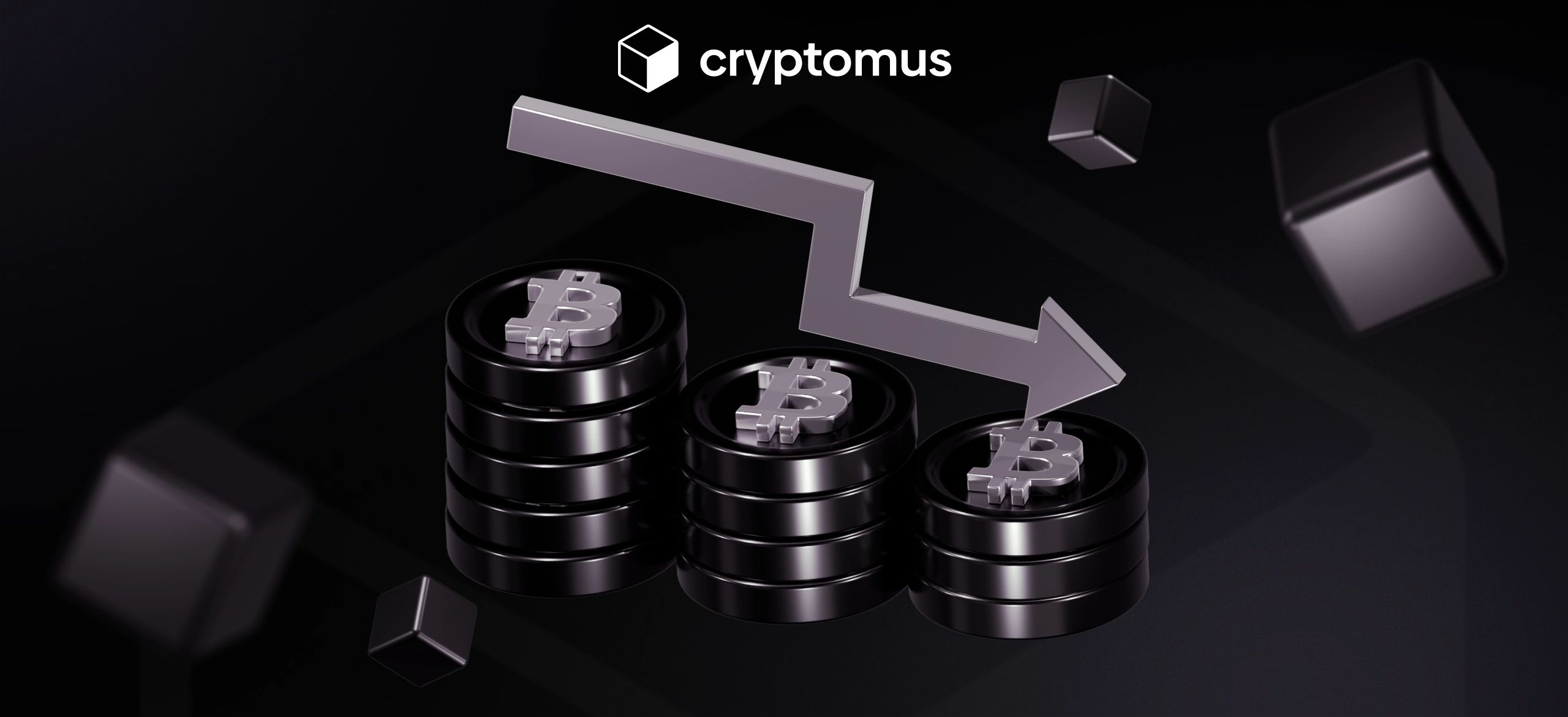
Bitcoin Vs. Monero: Complete Comparison
Table of Contents
Bitcoin and Monero are both elements of the crypto space, but they play by very different rules. The first is famous for being open and transparent, while the second uses clever technology to keep its users’ identities completely private.
Below we will tell you about the main features of Bitcoin and Monero — so you can choose the one that suits you best. Read on to find out!
What Is Bitcoin (BTC)?
Bitcoin is the most recognized and capitalized cryptocurrency, often referred to as “digital gold.” It has a fixed maximum supply of 21 million coins, over 93% of which have already been mined. This built-in scarcity makes Bitcoin a popular choice for long-term holding and protection against inflation. Its high liquidity and global accessibility strengthen its role as a reliable store of value.
Although Bitcoin processes only around 7 transactions per second, its Proof-of-Work mechanism ensures high security and true decentralization. These qualities have earned the trust of institutional investors and made BTC a key benchmark for the entire crypto market. Despite the rise of newer technologies, Bitcoin remains one of the most reliablestable and influential digital assets in modern finance.
What Is Monero (XMR)?
Monero is a type of digital money made with the aim of keeping things secret and hidden. Unlike many other cryptocurrencies, it makes transactions hard to track by using technologies like ring signatures, stealth addresses, and confidential transactions (RingCT). These mechanisms hide the info about who’s giving, who’s getting, and how many coins are moved. So, each transfer becomes virtually invisible to outsiders.
Another characteristic is that Monero uses a flexible and ASIC-resistant mining algorithm (RandomX), which allows users to mine effectively using regular consumer-grade hardware like CPUs. As a result, mining remains more decentralized, reducing the risk of control by a small group of large miners.

Key Differences
Bitcoin and Moner͏o are both famous coins, but they act differently. Here’s a fast view of what makes them not the same.
Privacy
The blockchain of Bitcoin is publicly available, including senders’ and receivers’ addresses and the amount of such transactions. It is easily accessible to everyone, with details as to owner addresses and amounts sent in a transaction. While the Bitcoin addresses are pseudonymous, not directly revealing identity, the blockchain can in some cases be analyzed to de-anonymize the addresses.
Monero takes privacy to the next level by using advanced cryptographic techniques. Ring signatures allow the sender to hide among a group of users, making it unclear who actually initiated the transaction. Stealth addresses create one-time-use addresses for recipients, preventing any direct link to their main address. Confidential transactions encrypt the amount being sent. Together, these features hide the sender, receiver, and transaction amount, making it extremely difficult — if not impossible — for third parties to track the flow of funds.
Transaction Speed & Fees
Bitcoin processes about 7 transactions per second, with an average confirmation time of 10 minutes. During high demand, this can cause delays and push transaction fees up to several dollars or more. This is because of the small size of the block.
Monero processes around 10–15 transactions per second thanks to a smaller block size and protocol optimizations. It confirms transactions faster and usually has much lower fees — often just a few cents, making it more practical for everyday private payments.
Mining Accessibility
Bitcoin mining is mostly entrusted to specialized, expensive mining hardware commonly referred to as ASICs. Which is to say that normal people can’t really expect to compete, and mining won’t be done in massive landfills by large operations with lots of resources. It can feel a bit exclusive.
Monero can be mined using regular computers — no expensive ASIC hardware required. Its algorithm is optimized for CPUs and GPUs, which makes mining more accessible to everyone and helps maintain decentralization.
Head-To-Head Comparison
Here’s a quick side-by-side look at how Bitcoin and Monero differ across key features:
| Feature | Bitcoin | Monero | |
|---|---|---|---|
| Privacy | BitcoinPublic, transparent transactions | MoneroFully private with ring signatures, stealth addresses, RingCT | |
| Transaction Speed | Bitcoin~7 TPS, ~10 minutes confirmation | Monero~10–15 TPS, ~2 minutes confirmation | |
| Fees | BitcoinFrom around $1 up to $10+ during network congestion | MoneroTypically around $0.01–$0.05 | |
| Mining Hardware | BitcoinASIC-dominated | MoneroOptimized for CPUs & GPUs | |
| Supply Limit | Bitcoin21 million fixed supply | MoneroMain supply capped + small tail emission | |
| Governance | BitcoinDecentralized, slow updates | MoneroCommunity-driven, faster protocol improvements | |
| Use Case Focus | BitcoinStore of value, digital gold | MoneroPrivacy-focused, everyday private transactions |
Which Is The Better Buy?
Choosing between Bitcoin and Monero really depends on what you’re looking for. If you want a widely recognized digital asset often called “digital gold,” with a strong network and solid store of value, Bitcoin might be the choice for you. But if privacy is your top priority and you want to keep your transactions completely confidential, Monero offers advanced features that make it one of the most private cryptocurrencies out there.
Both have their strengths and risks, and both play important roles in the crypto world. Ultimately, the better buy comes down to your personal goals, values, and what matters most to you. So, what will you choose?
Simplify Your Crypto Journey
Want to store, send, accept, stake, or trade cryptocurrencies? With Cryptomus it's all possible — sign up and manage your cryptocurrency funds with our handy tools.
Get Started









